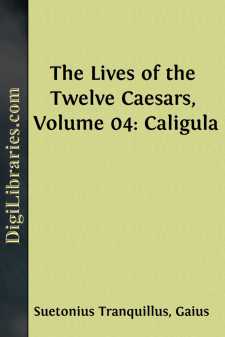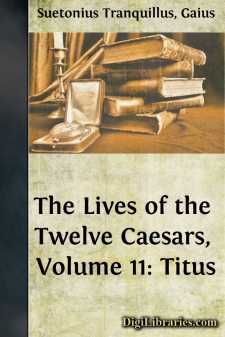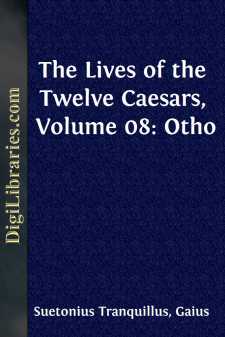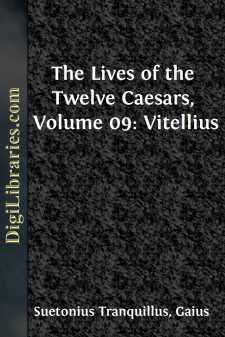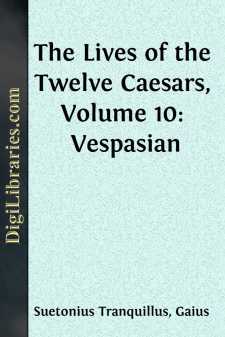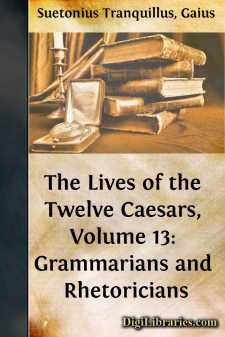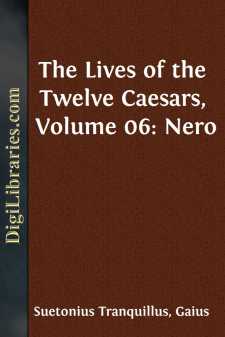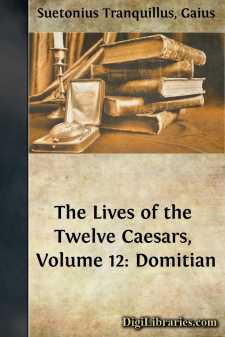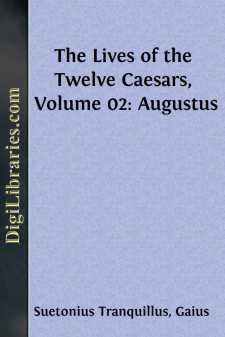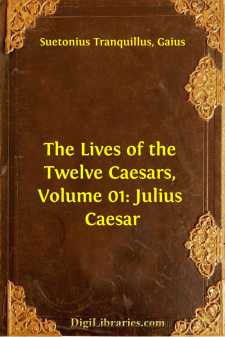Categories
- Antiques & Collectibles 13
- Architecture 36
- Art 48
- Bibles 22
- Biography & Autobiography 813
- Body, Mind & Spirit 142
- Business & Economics 28
- Children's Books 16
- Children's Fiction 13
- Computers 4
- Cooking 94
- Crafts & Hobbies 4
- Drama 346
- Education 46
- Family & Relationships 57
- Fiction 11829
- Games 19
- Gardening 17
- Health & Fitness 34
- History 1377
- House & Home 1
- Humor 147
- Juvenile Fiction 1873
- Juvenile Nonfiction 202
- Language Arts & Disciplines 88
- Law 16
- Literary Collections 686
- Literary Criticism 179
- Mathematics 13
- Medical 41
- Music 40
- Nature 179
- Non-Classifiable 1768
- Performing Arts 7
- Periodicals 1453
- Philosophy 64
- Photography 2
- Poetry 896
- Political Science 203
- Psychology 42
- Reference 154
- Religion 513
- Science 126
- Self-Help 84
- Social Science 81
- Sports & Recreation 34
- Study Aids 3
- Technology & Engineering 59
- Transportation 23
- Travel 463
- True Crime 29
The Lives of the Twelve Caesars, Volume 04: Caligula
Description:
Excerpt
CAIUS CAESAR CALIGULA.
(251)
I. Germanicus, the father of Caius Caesar, and son of Drusus and the younger Antonia, was, after his adoption by Tiberius, his uncle, preferred to the quaestorship [377] five years before he had attained the legal age, and immediately upon the expiration of that office, to the consulship [378]. Having been sent to the army in Germany, he restored order among the legions, who, upon the news of Augustus's death, obstinately refused to acknowledge Tiberius as emperor [379], and offered to place him at the head of the state. In which affair it is difficult to say, whether his regard to filial duty, or the firmness of his resolution, was most conspicuous. Soon afterwards he defeated the enemy, and obtained the honours of a triumph. Being then made consul for the second time [380], before he could enter upon his office he was obliged to set out suddenly for the east, where, after he had conquered the king of Armenia, and reduced Cappadocia into the form of a province, he died at Antioch, of a lingering distemper, in the thirty-fourth year of his age [381], not without the suspicion of being poisoned. For besides the livid spots which appeared all over his body, and a foaming at the mouth; when his corpse was burnt, the heart was found entire among the bones; its nature being such, as it is supposed, that when tainted by poison, it is indestructible by fire. [382]
II. It was a prevailing opinion, that he was taken off by the contrivance of Tiberius, and through the means of Cneius Piso. This person, who was about the same time prefect of Syria, and made no secret of his position being such, that (252) he must either offend the father or the son, loaded Germanicus, even during his sickness, with the most unbounded and scurrilous abuse, both by word and deed; for which, upon his return to Rome, he narrowly escaped being torn to pieces by the people, and was condemned to death by the senate.
III. It is generally agreed, that Germanicus possessed all the noblest endowments of body and mind in a higher degree than had ever before fallen to the lot of any man; a handsome person, extraordinary courage, great proficiency in eloquence and other branches of learning, both Greek and Roman; besides a singular humanity, and a behaviour so engaging, as to captivate the affections of all about him. The slenderness of his legs did not correspond with the symmetry and beauty of his person in other respects; but this defect was at length corrected by his habit of riding after meals. In battle, he often engaged and slew an enemy in single combat. He pleaded causes, even after he had the honour of a triumph. Among other fruits of his studies, he left behind him some Greek comedies. Both at home and abroad he always conducted himself in a manner the most unassuming. On entering any free and confederate town, he never would be attended by his lictors. Whenever he heard, in his travels, of the tombs of illustrious men, he made offerings over them to the infernal deities....


